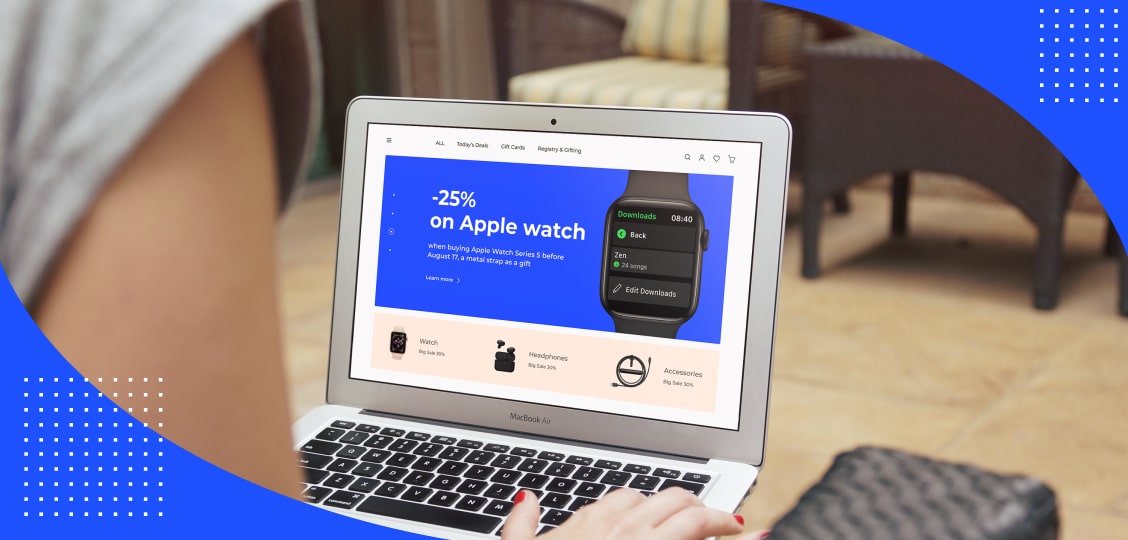5 Steps to choosing a payment gateway for an online marketplace platform
Learn how to choose a payment gateway solution for an online marketplace platform that will meet your business-specific needs and budget.

When building marketplace software, it is crucial to provide online payments. To remain competitive and boost consumer engagement, an organization should enable real-time or near real-time transactions.
For this purpose, software engineers can integrate a payment gateway. The main advantages of this solution are automated payment processing and increased data security. Since the team doesn’t have to develop tailor-made software, you will save both time and costs.
In this article, we will consider the most popular payment gateways — Braintree, PayPal, Stripe — to help you choose the best option for your online marketplace platform. You will also get a clear understanding of how a payment gateway works.
Serving as an analog of a third-party virtual terminal, a payment gateway is used for authorizing transactions. When a user makes an online purchase, the required card data is sent to a payment gateway, which forwards it to the acquiring bank and then—to the organization that issued the card.
The key tasks of this process are to:
With this functionality, consumers don’t have to provide their information to each individual merchant, which increases the security of sensitive data.
In addition, popular payment gateways employ data encryption to prevent cybersecurity threats. Furthermore, by integrating an online payment solution , an organization faster develops an online marketplace platform, this way reducing project costs and time-to-market.
The process of carrying out online transactions using a marketplace payment gateway:
This data is sent to the payment processor employed by the acquiring bank of a merchant and then — to the card association (i.e., Mastercard, Visa, American Express).
If you aim to develop a multi-vendor marketplace, it is reasonable to automate this process by allowing transaction data to bypass merchant systems.
As a consequence, the information will be routed directly from the browser to the gateway and finally — to the payment association sending the transaction to the card-issuing company.
Now, let’s consider the most popular payment gateways for online marketplace platforms.
Established in 2007, Braintree is a US company delivering online payment solutions to industries such as e-commerce, travel, and hospitality. The organization was acquired by PayPal in 2013.
Braintree is a popular payment gateway provider that supports digital transactions via:
In order to protect sensitive data, Braintree implements basic tools such as AVS and CVV, as well as advanced features, for instance, machine learning algorithms for fraud detection. Thanks to 3D Secure 2, this online payment solution ensures compliance with Strong Customer Authentication requirements while increasing information security.
Founded in 1998, PayPal is a US provider of online payment solutions to applications accepting digital transactions. Today PayPal is among the globally leading payment gateways for marketplaces supporting the following capture methods:
Aiming to safeguard sensitive data such as card and payment details, the PayPal payment gateway uses artificial intelligence to monitor the system for fraudulent activities. Thanks to this, the service helps marketplace apps and websites prevent cybersecurity risks.
Headquartered in San Francisco and Dublin, Stripe was founded in 2009 to deliver online payment solutions and APIs to web and mobile applications. The company provides a payment gateway that enables consumers to make purchases across 35 countries in more than 135 currencies.
As of today, Stripe allows for carrying out digital financial transactions via:
As a trusted payment service provider, Stripe focuses on the protection of sensitive data. For this purpose, the system uses machine learning to identify and assess security risks. What’s more, Stripe supports 3D Secure, device fingerprinting, and proxy detection.
Furthermore, by integrating the Stripe payment gateway into a marketplace application, you can automate various operations, for example, refund handling and fund management.
Many famous online marketplace platforms have already incorporated Stripe in their apps and websites, including, Amazon, Lyft, Instacart, DoorDash, and Booking.com.
To help you identify the best service for your project, we have prepared the following checklist.
Learn more about choosing a payment gateway that will suit your business-specific needs.
At Arateg, we have extensive experience in payment gateway integration and addressing various issues. For instance, our team enabled automatic verification of vendor banking details for an online table booking system for restaurants. During this project, we also made it possible to carry out international money transfers without currency conversion fees.
When creating a mobile fitness app that brings together users and trainers, our software engineers tuned up instant calculation and accrual of commission fees between three parties: content creators, product owners, and the Stripe payment gateway.
If you want to launch a marketplace or extend the existing platform, you are welcome to contact our software experts. We will get back to you within 1 business day and help resolve business-specific challenges. Project consultation is free of charge.
To learn what other features you should implement, read the article “How to build an online marketplace platform and how much does it cost?”.

Learn how to choose a payment gateway solution for an online marketplace platform that will meet your business-specific needs and budget.

How much time and money do you need to create an e-commerce marketplace like Amazon? What technology stack and monetization model should you choose? Read our article to find out.
Now, you will receive a fresh newsletter from us.
Get the latest scoop on software application tips, announcements, and updates from us. Subscribe to our newsletter!